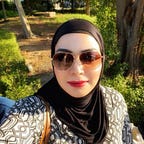The Unseen Struggles: Women in Gaza Battle Against Injustice and Neglect
By Humaira Naz
In the heart of Gaza, where resilience meets despair, a silent battle is being waged by women and girls. Amidst a backdrop of crumbling infrastructure and a dire lack of resources, they face unimaginable hardships, including giving birth without pain relief and resorting to makeshift period products. The situation is dire, and it demands our immediate attention.
According to the UN’s agency for Palestine, Gaza’s water supply is in shambles, with only one functioning pipeline out of three. With a staggering ratio of one toilet per 486 people, the region is teetering on the brink of a humanitarian catastrophe. UNICEF communications specialist Tess Ingram aptly describes the situation as babies being “delivered into hell” as their mothers endure childbirth without any anesthesia.
Trapped within this dystopian reality, over 1.9 million Gazans have been displaced since 7 October. In the southern region of Rafah, a tent “city” spanning two square miles has been erected as a desperate refuge. However, this makeshift haven lacks essential supplies, including food, medical aid, and even basic sanitary products such as towels, tampons, and contraceptive pills. The consequences are devastating.
ActionAid worker Riham Jafari, stationed in Bethlehem, paints a vivid picture of the plight faced by women and girls in Gaza. Imagine managing your period without access to sanitary products, toilet paper, or even soap. Imagine being unable to cleanse yourself properly. This is the harsh reality for hundreds of thousands of women and girls in Gaza today. Desperation leads them to cut up towels or use tent materials as makeshift pads, risking infection and the potentially fatal toxic shock syndrome.
The suffering doesn’t end there. UNICEF’s Tess Ingram reminds us that newborn babies endure unnecessary pain while some mothers bleed to death. This unimaginable scenario should haunt our collective consciousness and keep us awake at night. It is a stark reminder of the urgent need for action.
Tragically, women and girls bear the brunt of the violence in Gaza. According to the Hamas-run health ministry, they account for approximately 70% of the 25,000 lives lost since 7 October. Their voices go unheard, their struggles invisible to the world. An anonymous ActionAid Palestine worker shares her personal anguish, recounting the lack of water for personal hygiene during her period and the absence of sanitary pads. These simple necessities are luxuries that many of us take for granted.
Adara, a displaced mother of four, echoes the sentiment, describing the agonizing wait for the bathroom and the scarcity of clean water. In Gaza, the meager allocation of 15 liters per person per day remains a distant dream. The UN’s agency for Palestine estimates that only one water pipeline between Israel and Gaza remains functional, exacerbating the crisis.
ActionAid’s urgent plea for a ceasefire to facilitate the entry of aid into Gaza cannot be ignored. It is a call to action, a demand for justice, and an opportunity for humanity to rise above politics and prioritize the well-being of those who suffer most. The time for bold action is now.
Let us not turn a blind eye to the plight of women and girls in Gaza. Their struggles are a testament to the resilience of the human spirit, but they should not have to endure such suffering. It is our duty to raise our voices, demand change, and ensure that the forgotten voices of Gaza are heard.
In the face of adversity, unity and compassion can prevail. Let us come together to support the women and girls of Gaza, providing them with the dignity, care, and resources they so desperately need. Only then can we begin to heal the wounds inflicted upon them and restore hope to a shattered land.
